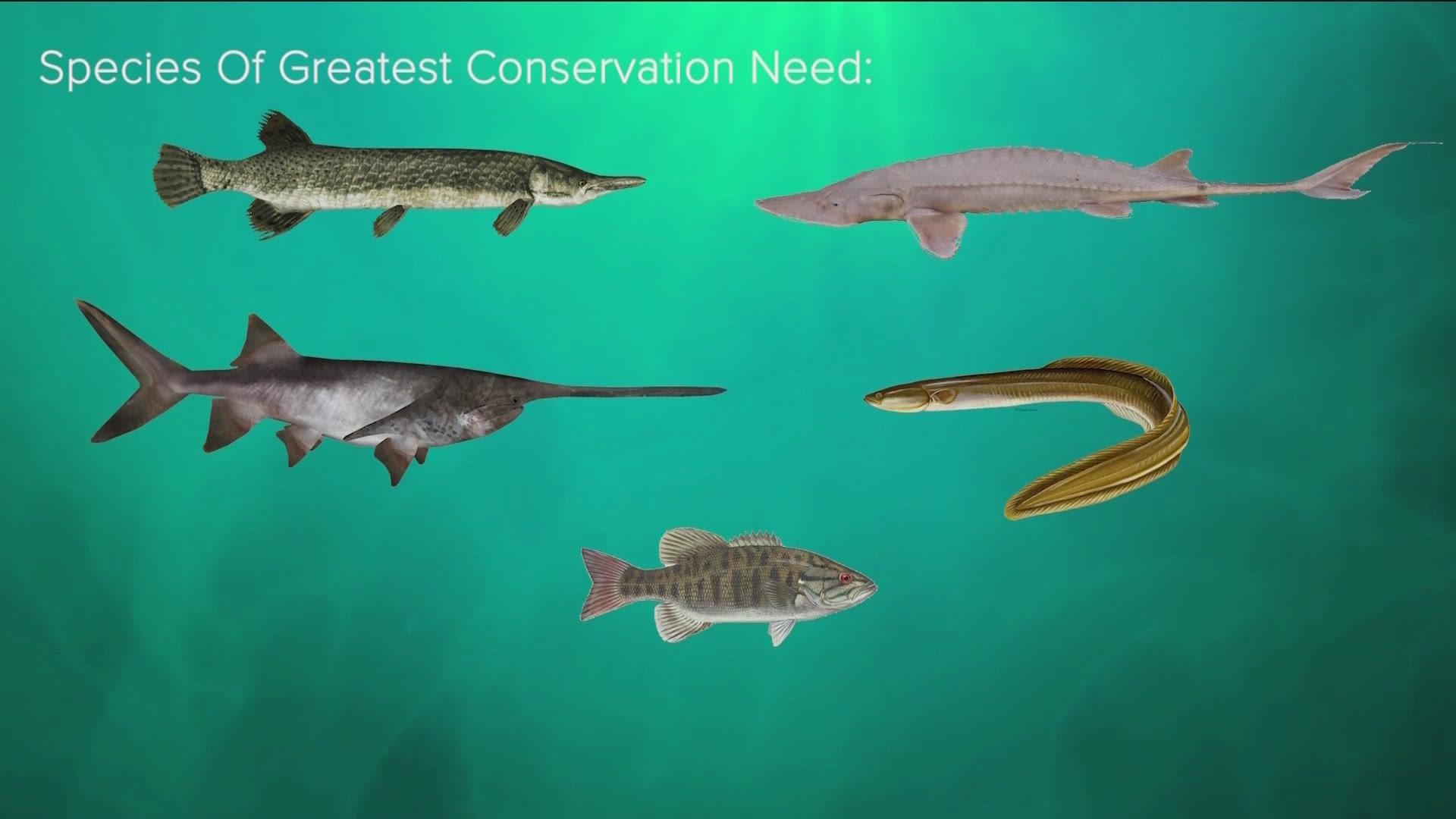TYLER, Texas — The National Wildlife Federation says one third of all species in the United States are at risk of extinction.
In this week's edition of Hooked on East Texas, we examined a piece of legislation working its way through Congress called the Recovering America's Wildlife Act or RAWA. The House passed the legislation last week and it's on the Senate's calendar. Now supporters are trying to get the Act to the finish line.
On a recent visit to the Texas Freshwater Fisheries Center, we saw children watch in awe as a 70-year old, 200 pound Alligator Gar swam back and forth in its tank to amazement of the kids. They didn't know it but the pre-teens were looking at a true native Texan. A species of fish that dates back 215 million years which fossils of pre-historic Alligator Gar have been found in parts of Texas.
But seeing Alligator Gar in Texas might be rare in the future. Why? A changing climate, habitat loss, invasive species, disease, and severe weather could mean that one day we wouldn’t see Alligator Gar and other species in the wild.
What’s being done? Last week, the House of Representatives passed HR 2773, the Recovering American’s Wildlife Act or RAWA. In committee meetings before the vote, Rep. James McGovern of Massachusetts called H.R. 2773 the most significant bi-partisan investment in wildlife conservation in a generation.
RAWA provides conservation grant funding for fish and wildlife programs at the state, tribal, and local levels. The aim is to target species of greatest conservation need, they’re not threatened or endangered, at least not yet. That’s why TFFC Director Tom Lang is pushing hard for passage.
“To be on that list of greatest conservation need means that it has issues and it’s headed that way if we don’t interject and do something," Lang said.
In Texas, the species of the greatest conservation of animals needed includes the Alligator Gar, the shovelnose sturgeon, the paddlefish, the American eel and the freshwater fish of Texas, the Guadalupe bass.
RAWA would send $50 million to the Texas Parks and Wildlife Department annually to fund state wildlife action plans aimed at helping these species.
“Targeted conservation plans" Lang said. "Scientifically based, federally approved to take care of these species at home.”
But like any piece of legislation RAWA has hurdles to clear before becoming a law. RAWA is a $1.4 billion funding measure with no end date.
“Although I’m a co-sponsor of this bill and in support of it, I understand why my Republican colleagues on the natural resources committee, have concerns, particularly with the failure to provide a funding off-set or sunset provision.” Oklahoma Republican Tom Cole said.
Supporters counter by pointing out that Texas has a $14 billion annual outdoor recreation industry that supports more than 327,000 jobs. Lake Fork Fishing Guide Jacky Wiggins sees the benefits first-hand.
“You know a lot of my customers don’t just come here to fish with me than go home. They come here fish with me one then they fish by themselves five days. They come for a week. They rent a house for a week. They spend a day with me to learn what they’re going to do then they spend the rest of the time with their own recreation," Wiggins pointed out.
There’s a lot at stake, economically and ecologically and scientists, such as Lang said this legislation comes down to an ounce of prevention is better than a pound of cure.
The Recovering America's Wildlife Act becomes law if senators vote to approve it. There's a lot of other issues before the Senate right now, but this one seems to have the backing and support.
RELATED: HOOKED ON EAST TEXAS: Lone Star Bass

